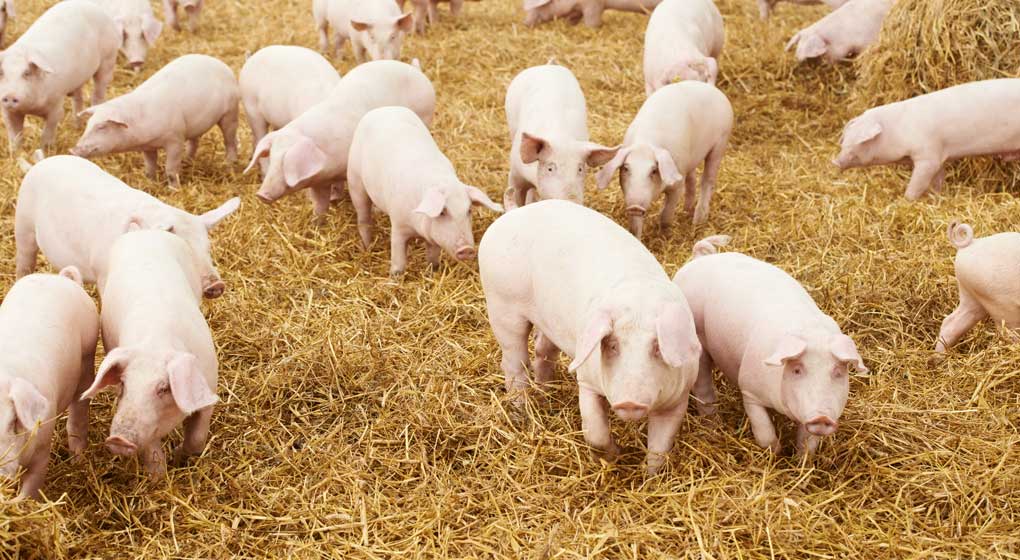Maintaining standards in pig meat processing
The following article was written by David Lindars, Technical Policy Advisor at BMPA and appeared in the February edition of New Food magazine as part of an in-depth focus on meat processing. It is reproduced here with their permission
THE UK meat industry has seen huge change over the last 20 years, driven by European Union legislation changes and the updating of various standards.
One of the main drivers of standards has been the BRC (British Retail Consortium), which is currently working its way through the draft of Issue 8 of its Global Standard for Food Safety. BRC committee members are drawn from a wide variety of sectors, such as industry, trade associations and retailers.
When a business is audited against this standard it is safe to say that it’s no walk in the park and can take up to two days. The auditor will seek to challenge the site’s systems, wanting to see objective evidence that their systems are working and, more importantly, managing risks.
Assured Food Standards (AFS) owns the Red Tractor Assurance scheme, under which the majority of UK cattle, sheep and pigs are processed. This supply chain is audited against the AFS standard, which is also subject to a review process that is revised by industry groups.
Membership of the BMPA Pork Scheme is so widely demanded because the requirements go above and beyond those of current legislation and set a higher benchmark for product quality
There are also several other schemes in the UK that are accredited under UKAS (United Kingdom Accreditation Service), which is recognised by government to assess against internationally agreed standards inspection and calibration services. UKAS sets rigorous standards, which the badge holder is audited against to ensure compliance. It also assures that the checks and balances the holder has in place are working and creditable.
The BMPA Pork Scheme
The British Meat Processors Association (BMPA) Pork Scheme standard provides quality assurance to retailers and consumers about pig welfare, food safety, integrity, provenance and traceability of the products that its members produce. The scheme represents the standard that sits behind the widely recognised and trusted Red Tractor consumer Logo for pork and pork products.
For many of the UK’s top retailers and food service companies our standard is the one they insist on from their pork product suppliers. The path of assurance in the British meat industry is an unbroken, quality-assured chain of farmers, abattoirs, processors and manufacturers of pork and pork products.
Membership of the BMPA Pork Scheme is so widely demanded because the requirements go above and beyond those of current legislation and set a higher benchmark for product quality that our scheme’s members work to higher standards and have been audited by independent UKAS- and ISO-accredited certification bodies.
Attaining assurance through the scheme not only allows manufacturers to prove they operate to best practice standards, but often acts as a ticket into a much wider market for their products amongst the larger retailers and food service buyers. Members can also display the Red Tractor logo on their products by applying to AFS for a licence.
Membership of the BMPA Pork Scheme is so widely demanded because the requirements go above and beyond those of current legislation and set a higher benchmark for product quality
The BMPA Pork Scheme modules form the backbone of our internationally recognised standard (Figure 1). In order to qualify for the (fresh pork) standards, plus any individual additional modules that apply to their particular products.
The core standards
These are general industry standards that all abattoirs, processors and manufacturers are expected to adhere to. There are numerous assurance schemes that BMPA recognises, such as the BRC Global Standard (food safety, storage and distribution), Red Tractor, and Quality Meat Scotland, among others.
Module 1: Pig Welfare and Slaughter deals with all aspects of pig sourcing from assured farms, biosecurity during transportation (lorry washing), as well as animal welfare during unloading and slaughter.
Module 2: Quality Assured Pork covers pork supplies, the receiving of pork into processing plants, temperature controls and storage. It also deals with processing standards, traceability and mass balance, along with standards for finished products.
Module 3: Bacon covers bacon supplies, the receiving of pork and bacon into processing plants, temperature controls and storage. It also deals with processing standards, traceability and mass balance, along with standards for finished products.
Module 4: Ham and Cooked Pork covers ham and cooked pork supplies, the receiving of pork and ham into processing plants, temperature controls and storage. It also deals with processing standards, traceability and mass balance, along with standards for finished products.
Module 5: Pork Sausage covers pork sausage supplies, the receiving of pork into processing plants, temperature controls and storage. It also deals with processing standards, traceability and mass balance along with standards for finished products.
Participants do not have to be members of the BMPA, the scheme is open to any meat business in the UK, however non-members pay slightly more per licence. The standards are wholly owned and managed by the BMPA and are also UKAS accredited.
Scheme participants undergo announced and unannounced surveillance audits carried out by BMPA approved auditors, who are required to have accreditation to the international standard for bodies certifying products, processes and services (ISO:17065) assessed by UKAS. They must also provide an assurance of the competence, impartiality and integrity of conformity assessment bodies.
Membership of the BMPA Pork Scheme is subject to the successful completion of an initial approval audit, annual announced surveillance audit, unannounced surveillance audit and, where deemed necessary, spot check audits (either announced or unannounced) if requested by the BMPA.
Tracking the supply chain
The British Pig Executive (BPEX) stable isotope reference analysis (SIRA) test allows the country of origin of pork bearing the Union Jack flag, the Red Tractor logo, or which is described as British, to be established. The scheme is reviewed in line with our UKAS accreditation and is currently undergoing an interim review. The last consultation with interested parties concludes on 1 March, and the release date is 2 April 2018.
Other checks and balances that the meat industry is using include blockchain and DNA sampling. Arc-net, for example, tracks products through the supply chain using the technology that powers bitcoin and other cryptocurrencies for food and drink producers, such as Cranswick, the listed pork group, and Ireland Craft Beers. Animals are given a DNA tag, which forms the start of the blockchain. Any information regarding veterinary issues, animal feed, movement between farms, etc. is added to the ledger.
DNA sampling allows food retailers, processors and producers to identify and trace the source of protein products throughout the entire supply chain. This advanced level of supply chain transparency enables food businesses to source with integrity and provides value-added assurance for consumers.







